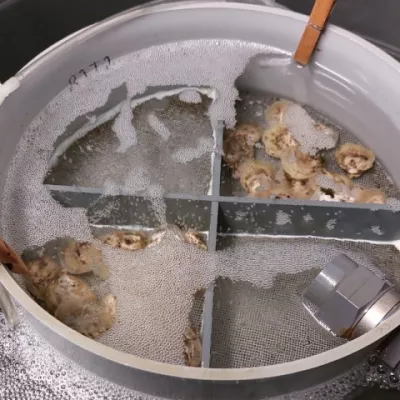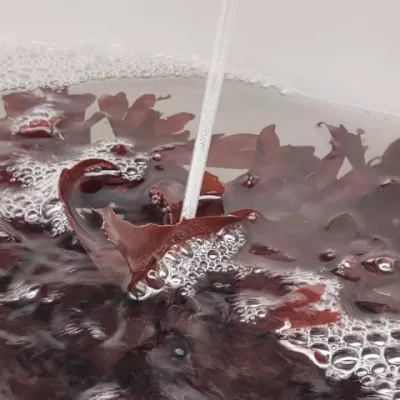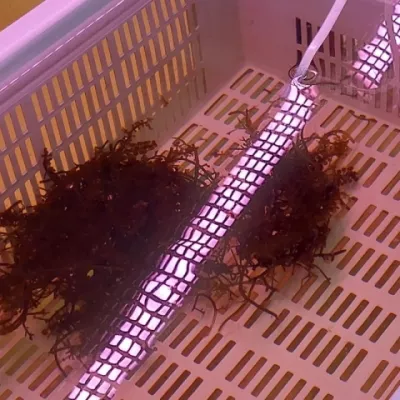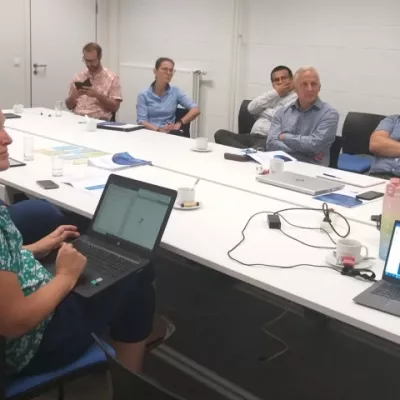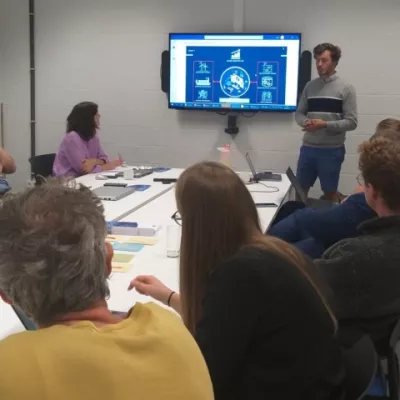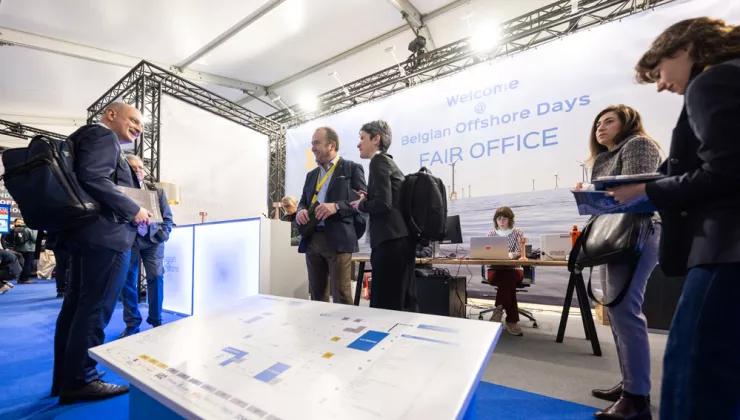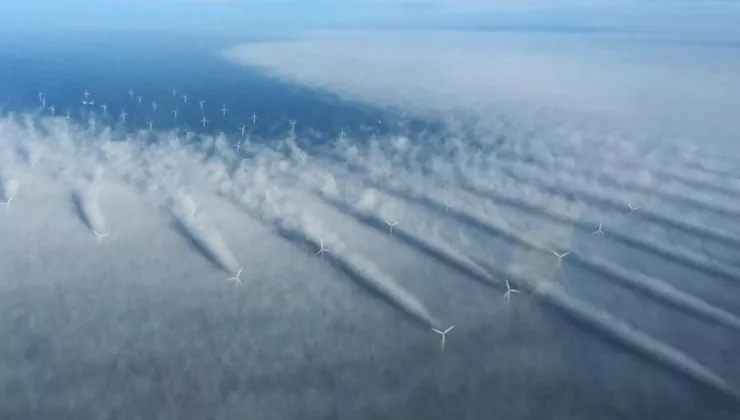Look back on the Blue Session ‘Digital Aquafarm’
On 8 September, the Blue Session ‘Digital Aquafarm’ took place as part of the Smart WaterUse project. This event was organised by Blue Cluster in cooperation with Ghent University (EMBRC) and Watercircle. This session’s topic was the digitisation of aquafarming and the search for affordable sensors to monitor water quality within the aquaculture sector.
Presentations
Two thesis students, Bernd Herremans and Charles Dimiaux, conducted research on monitoring recirculating aquaculture systems (RAS) for seaweed and shrimp as part of the Smart WaterUse project. They presented the results of their research, as well as a small test setup during this Blue Session.
It was pointed out that there is currently a shortage of available and affordable sensors for continuous monitoring of nitrogen levels in saltwater systems. The available sensors can be divided into three categories: electro-chemical, wet-chemical and optical sensors. Each category has its advantages and disadvantages.
In addition, it proved possible to build a fully autonomous sensor on a laboratory scale. Nevertheless, a lot of further research is still needed to enable large-scale application.
Findings
In the interactive session that followed, it was suggested that the price is often one of the main criteria when purchasing sensors for academic applications, and that less consideration is given to elements such as integration capabilities in an existing system or calibration frequency. A professional, commercial range of sensors is available for companies.
The most recent developments are in optical measurement sensors. Spectrolysers have the ability to measure different wavelengths per second and therefore monitor several parameters using 1 sensor. Nevertheless, for smaller businesses (<100-200 tonnes of product/year), the cost (CAPEX and OPEX) of a comprehensive monitoring system is often too high.
It was also noted that technology suppliers are increasingly focusing on two solutions: monitoring as a service, or the use of virtual sensors.
Guided tour
Finally, participants were able to have a guided tour of the Artemia Reference Center. This centre is renowned worldwide for its research, expertise, trainings and services in the aquaculture sector.

